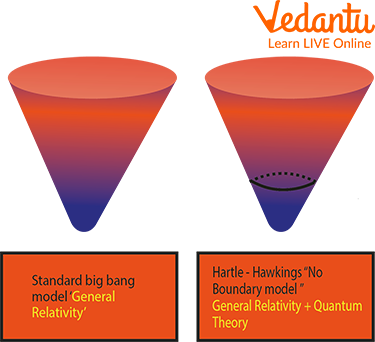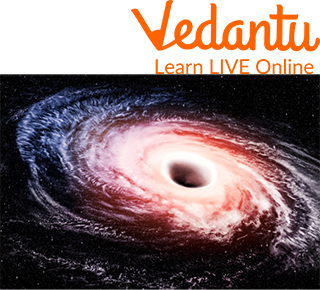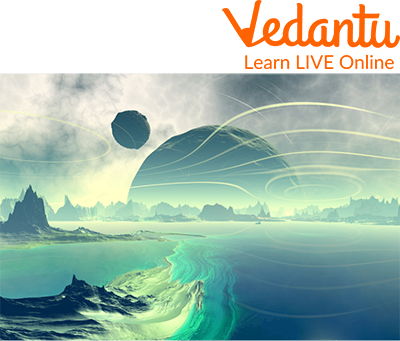




Explore Major Theories and Contributions of Stephen Hawking
Ever since our childhood, we have been listening to Stephen Hawking the great. Stephen William Hawking was an English theoretical physicist. The job role of a physicist is not very easy. Physicists are a type of scientist who specialises in the field of physics. These scientists are quite interesting as they explore the fundamental properties and everything related to it that govern space, time, energy, and matter.
Studying in these areas Stephen Hawking made a long Stephen Hawking discoveries list. This physicist over his lifetime wrote various theoretical books and made big assumptions related to the world. We are sure now this is getting quite interesting for the kids doesn’t it? Now, further, in this article, we will talk about Stephen Hawking's discoveries list and much more.
Who is Stephen Hawking?
Stephen Hawking was a well-known English cosmologist, mathematician, and physicist. Stephen Hawking, whose real name was Stephen William Hawking, is regarded as one of the key modern-day scientists who explained the concept of black holes and Big bang theory.
On January 8, 1942, Stephen Hawking was born, and Oxford is well-known as his birthplace. Stephen Hawking was so sharp that at the age of 17, he already started his university education. Hawking’s scientific works are what he is best known for. In fact, one of his works included a collaboration with Roger Penrose on gravitational singularity theory. It is where both studied general relativity, black holes, and emit radiations. Interestingly, Hawking called the whole procedure “Hawking Radiation”.
Throughout his lifetime, he achieved huge success with several research works. In most of his works, he discussed his theories on various physics knowledge. In fact, he was a big supporter of the world's interpretation of quantum physics.

Stephen Hawking
What are the Discoveries of Stephen Hawking?
Stephen Hawking has made a long list of famous and well-known discoveries. Some famous discoveries or theories given by Stephen Hawking are the following:-
A Universe That Has No Space-Time Boundaries
Stephen Hawking researched quite a lot when it came to space and time. In some way or the other, this physicist proved that the universe has no space-time boundaries. He tried proving this theory using various mathematical calculations and physics experiments. In this discovery, he believed that you can’t have time or space before the Big Bang. As a result, this proved that the universe has no space-time boundaries.

A Universe that has no Space-Time Boundaries
Black Hole Radiation
Hawking was quite known for his various black hole assumptions and theories. According to Hawking, a black hole is a collapsed star that has zero volume and infinite mass. They are believed to be very dense and nothing could escape once it has passed through them. Hawking postulated the existence of radiation that emits through a black hole. Now, this concept is famously known as Hawking radiation.

A Black Hole Radiation
Possibility of Extraterrestrial Life
Fans did not appreciate Hawking just for his theories but also because he was a strong proponent of extraterrestrial life. It is said that Hawking believed that without qualification the balance of probability falls to extraterrestrial life. In fact, he strongly believed that the Earth had already been visited by extraterrestrial life. Now, that life was in the form of viruses or bacteria that Hawking enjoyed imagining.

Possibility of Extraterrestrial Life
The Big Bang Theory
The Big Bang theory is a physical theory explained by none other than Stephen Hawking. This theory from Hawking describes how the whole universe expanded from an initial state to high density. On the other hand, the hypothesis in this theory states that all the matter in this universe came into existence at the same time. Now, the estimation of that could be 13.8 billion years ago.
The Origination of Universe (The Theory of Everything)
Stephen Hawking wrote this thesis in 1988. This theory from the world-famous physicist proposed that Steady State is the theory that is mathematically self-contradictory. Hawking explained in this theory that the whole universe started infinitely small. Now, over the years, that small unit became a larger density and he called it a singularity. This thesis is accepted by major universities and professors all over the world.
Cosmic Inflation Theory
This theory from Hawking was given in 1982. Physical cosmology, cosmological inflation, and inflation are all a theory of the exponential expansion of space in the early universe. Cosmic inflation is the concept of faster-than-light expansion that spawned many others in this universe.
Stephen Hawking Discoveries List
Some of the important discoveries or theories made by Stephen Hawking are explained above. Other important theories and discoveries made by Stephen Hawking are the following:
Gravitational and Spacetime Singularities
The Big Bang Theory
Is the End in Sight for Theoretical Physics?
Cosmological Inflation
A brief History of Time
Euclidean Quantum Gravity (Book)
Black Holes and Baby Universes
Interesting Facts About Stephen Hawking for Kids
Hawking received the honorific CBE (Commander of the British Empire) in 1982 from the Queen.
He received the Presidential Medal of Freedom in 2009, which is the highest honour given to a civilian in the United States.
Summary
In this article, we have discussed the findings and discoveries of Stephen Hawking. We now know that he contributed a lot to science during his time. During his old age, Hawking continued writing for the young generation. His work toward society will always remain a godly gesture. Stephen Hawking not only gave theories but he had started planning for a trip to space. Unfortunately, that was not quite possible for him because of his disease. Moreover, the discoveries made by Stephen Hawking will always live within us throughout every generation. We hope you enjoyed reading this article, in case of any other doubts, feel free to ask in the comments.
FAQs on Stephen Hawking Discoveries: Key Concepts & Insights
1. What is considered Stephen Hawking's most important discovery?
Stephen Hawking's most significant discovery is the theory of Hawking radiation. He proposed that black holes are not completely black but can emit particles and radiation over time. This groundbreaking idea connected general relativity (the science of gravity and the large scale) with quantum mechanics (the science of the very small).
2. How did Stephen Hawking contribute to the Big Bang theory?
Stephen Hawking refined the Big Bang theory by applying the laws of general relativity. He, along with Roger Penrose, showed that the universe must have begun from an extremely small and dense point called a singularity. His work provided a strong mathematical foundation for the idea that our entire universe expanded from this initial state approximately 13.8 billion years ago.
3. What were Stephen Hawking's main theories about black holes?
Stephen Hawking's primary contributions to our understanding of black holes include:
- Gravitational Singularities: He proved that a singularity, a point of infinite density, must exist inside every black hole.
- Black Hole Mechanics: He helped formulate laws describing the behaviour of black holes, similar to the laws of thermodynamics.
- Hawking Radiation: His most famous theory, which states that black holes can slowly 'evaporate' by emitting radiation from their event horizon.
4. What did Stephen Hawking mean when he proposed a universe with no space-time boundaries?
The no-boundary proposal, developed with James Hartle, suggests that the universe is finite but has no edge or starting point. You can think of it like the surface of a sphere: you can travel all around it, but you will never find an 'edge'. In this model, asking what came 'before' the Big Bang is meaningless, just as it's meaningless to ask what is north of the North Pole.
5. If Stephen Hawking's discoveries were so important, why did he never win a Nobel Prize?
The Nobel Prize in Physics is typically awarded for discoveries that have been confirmed by experimental or observational evidence. While there is growing indirect support for Hawking's theories, especially Hawking radiation, the effect is too faint to be directly detected with our current technology. The lack of direct proof is the primary reason he was never awarded the prize.
6. Did Stephen Hawking invent any physical devices or technologies?
No, Stephen Hawking did not invent physical devices. As a theoretical physicist, his work involved developing ideas, theories, and mathematical equations to explain the fundamental laws of the universe. His contributions were concepts like Hawking radiation and singularity theorems, not tangible inventions like a telescope or computer.
7. Besides his work on black holes, what other major scientific idea did Hawking explore?
Beyond black holes, Stephen Hawking was a strong proponent of the theory of cosmological inflation. This theory proposes that the universe underwent an incredibly rapid, exponential expansion in the first fraction of a second after the Big Bang. This 'inflation' helps explain why the universe is so large and uniform on a grand scale.









